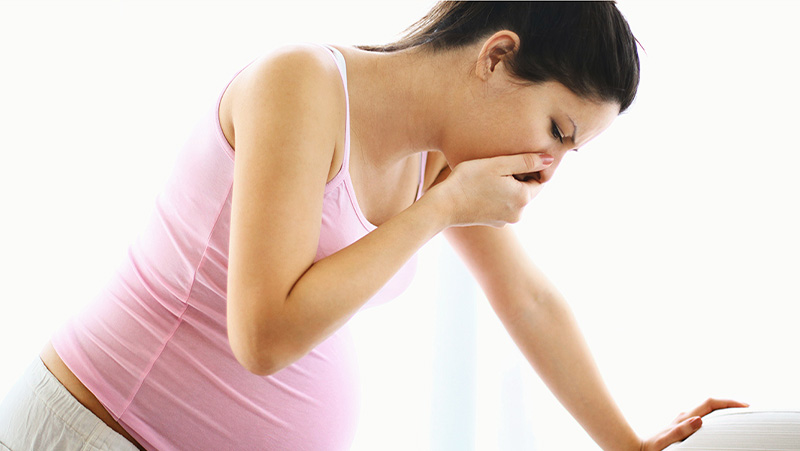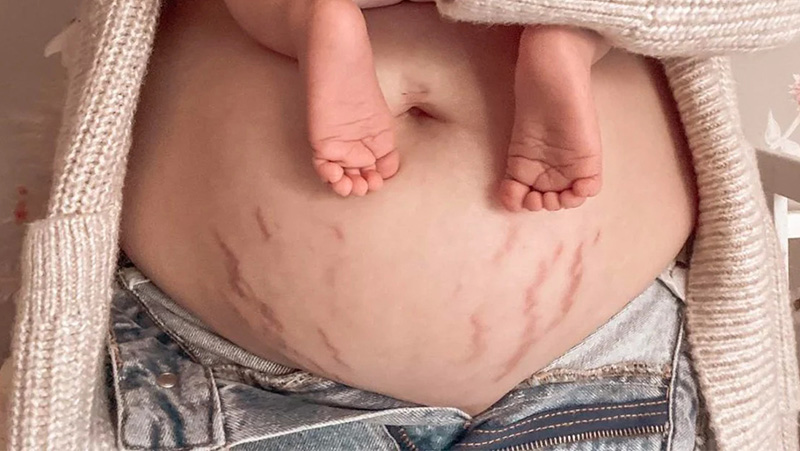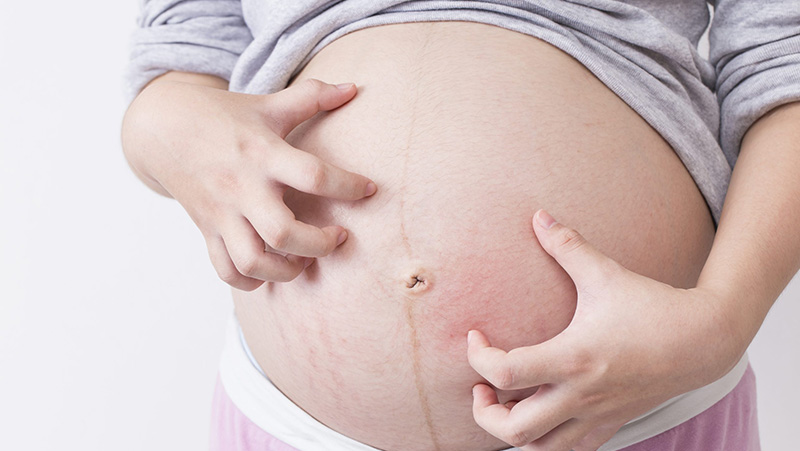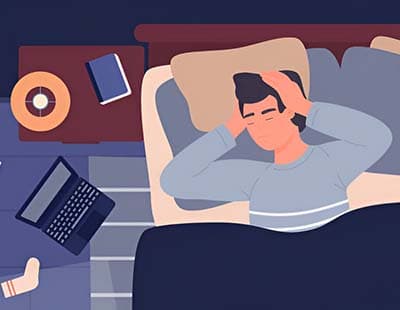Pregnancy brings a lot of changes to a woman's body, however, some of these changes might happen secretly. While you can see some basic differences in your body, like a growing belly, a few might go unnoticed.
These hidden changes are the reasons behind common pregnancy symptoms, such as heartburn, frequent urination, nausea, and feeling out of breath.
But First, Why Do Our Body Changes During Pregnancy?
During pregnancy, a few changes are hard to notice, like how you start breathing faster than usual. All these changes prepare your body for your baby's development and delivery.
Body Parts and Organs that Change During Pregnancy
The following are certain organs, systems, and parts of your body that go through various changes when you are pregnant.
- Abdomen
- Endocrine System
- Cardiovascular System
- Integumentary System (Hair, Skin, and Nails)
- Legs and Feet
- Respiratory System
- Breast
- Body Temperature
- Musculoskeletal System
- Urinary System
- Body Weight
All these changes occur at different stages of pregnancy. For many expecting mothers, the first change that they notice is their breasts. Soar breasts are one of the most common and early pregnancy changes. The second most noticeable change is the growing abdomen or your belly.
An Obstetrician (OB) or a Gynecologist (GYN) can help you adapt to these changes and make sure your pregnancy proceeds further safely through regular appointments and prenatal visits.
The First Trimester
In the first three months of your pregnancy, i.e., from weeks 0- to 13, your body experiences a lot of changes. Some changes are easy to notice, like missing your periods and sensitive breasts. But there are a few other changes in your body during this period, that might surprise you.
Morning Sickness and Nausea

Feeling sick, nauseous, and wanting to throw up, is a common change to notice during pregnancy. However, the intensity and time of occurrence can vary from expecting moms to moms. This change might last even beyond the first trimester for some.
It is seen that about 85% of cases only get better by the second trimester. If morning sickness is difficult for you to handle always discuss it with your healthcare provider to find out ways to ease it. Remember taking unprescribed or over-the-counter medication might make the situation worse.
Headaches
Pregnancy brings along a lot of hormonal changes resulting in mild to severe headaches. In such cases, how to sleep and what you eat are important factors that you should consider. Also, it is equally important to stay hydrated, eat small meals, and avoid doing tasks that put strain on your eye.
Additionally, getting enough quality sleep and using a cool or warm washcloth on your forehead can help you ease headaches during pregnancy. For better sleep try using a pregnancy body pillow that helps support your body and enhances your sleep quality. Finding the right pregnancy pillow is important.
ELI&ELM SPECIAL OFFER!
Urinating Frequently
During pregnancy, you might notice the need to use the bathroom more often than usual. If you feel any discomfort or pain while peeing, it is important to monitor your urine. Changes in color or the presence of blood is a sign that you need to contact your healthcare provider immediately.
Vaginal Secretion
Most pregnant women have normal vaginal discharge (thin, milky secretion) during this time due to increased hormonal levels. However, if you notice something unusual, like colored, frothy, smelly, or itchy discharge, or experience vaginal pain or bleeding, contact your healthcare provider right away.
Feeling light-headed or having difficulty catching breath is normal in the first trimester so take care of yourself as you slowly enter the second trimester.
The Second Trimester
Between weeks 13 and 27 of your pregnancy, which is your second trimester, you will already be halfway through your pregnancy journey. Some moms-to-be even wonder how time flies, while others seem to be happy to leave the first trimester along with all that morning sickness behind.
It is common to experience swelling, especially in your feet and ankles, during pregnancy especially when entering the second trimester. Therefore, to reduce swelling, try to avoid adding extra salt to your food and stay away from high-sodium foods.
Remember, every woman has their own unique pregnancy journey, therefore, the following physical changes might even vary during the second trimester.
Swollen Gums and Bleeding Nose
Increased blood flow during pregnancy due to changes in the level of estrogen hormone can make your nose bleed and gums red and inflamed. Also, it might be difficult to keep up with good dental habits due to nausea during pregnancy so remember to brush and floss regularly. Do not forget to let your dentist know that you're pregnant during your regular checkups.
Constipation
It is one of the common changes among most pregnant women. To prevent constipation during pregnancy, try to drink more water, eat high-fiber foods, and stay active. Mild workouts and exercises might help. If you are a little concerned about it, do not hesitate to discuss it with your healthcare provider at the next prenatal visit.
Stretch Marks

You may see marks(purple, pink, or red) on your breasts, stomach, and thighs during pregnancy. It's a little difficult to prevent them from coming, especially if you have a family history or have gained a lot of weight during pregnancy.
After the delivery, these marks tend to fade away becoming less visible. These changes continue with the growing belly in your pregnancy journey.
Leg Cramps
During pregnancy, your uterus tends to get bigger and puts pressure on the nerves going to your legs and feet, causing leg cramps. To ease these cramps, try to flex your feet, give your legs a gentle massage, and make sure you stay well-hydrated and eat a good diet.
The Third and the Final Trimester
Now when you are entering the last weeks of your pregnancy, you might feel a bit more forgetful, tired, and uncomfortable during this third trimester (weeks 28-40). This is the time when you actually need to pay attention to your doctor's advice and your body's alarming signals. These final weeks come with a lot of remarkable changes like the following.
Difficulty in Sleeping
Insomnia during pregnancy can be caused due to excessive consumption of caffeine, exercising, or drinking lots of fluids just before going to bed. The movement of your baby inside the womb can also be one of the reasons behind your sleepless nights.
For better results—
- Stick to a bedtime routine,
- Workout or exercise regularly,
- Have warm milk, and chamomile tea before bedtime,
- Try not to take long naps during the day so you can sleep better at night.
Braxton Hicks contractions
As your body gets ready for labor, your uterus contracts to make your cervix soft and thin. These contractions are known as Braxton Hicks contractions and are pretty normal during pregnancy.
Itchy and Dry Skin

Dry and itchy skin is something very common during pregnancy, especially in cold, dry weather or after long, hot baths. In order to prevent this the best you can do is to apply oil, lotion, and use any glycerin-based soap to keep your skin moisturized. Calamine lotion can also help with itching. If in case you are dealing with severe itching, let your healthcare provider know and try to identify the reason behind it.
Heartburn
During pregnancy, your growing uterus puts pressure on your stomach, causing the food and the acidic liquids in there to flow back to the esophagus (a tube connecting your mouth to the stomach that allows food to travel down) is known as heartburn. This feels like a burning sensation in your chest or upper abdomen and sometimes comes along with a burp and sour-tasting fluid.
The Bottom Line
As we come to the end of this journey of how pregnancy changes your body, remember that every expectant mother experiences different changes at different stages of their pregnancy. Also, changes in your while you are pregnant show that you are doing an incredible job of bringing a baby into the world.
Keep your trust in your doctor, take as much rest as you can, and enjoy this extraordinary journey of yours!
Sources:
ACOG: Changes During Pregnancy
American Pregnancy Association: How Your Body Changes During Pregnancy
Healthline: What Bodily Changes Can You Expect During Pregnancy?





















